Climate Change
Study: Climate Change Turning World's Lakes Into Hot Tubs
The message of a new study funded by NASA and the National Science Foundation: don't forget freshwater when considering the impacts of climate change. Lakes and other bodies of water are threatened by potentially catastrophic vulnerabilities.
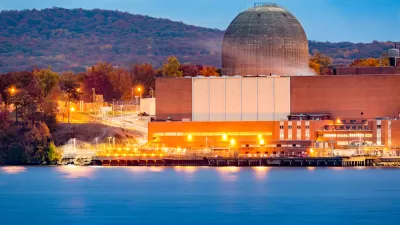
Defending Nuclear Power Plants from Sea Level Rise
Environmentalists are pushing the nuclear industry to do more to prepare for sea level rise. An estimated 13 nuclear plants in the U.S. are considered vulnerable now or in the future.
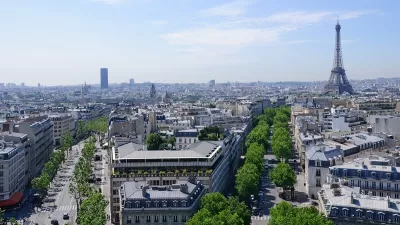
Implications for Planning Emerge From COP21
The Conference of Parties (COP21) held during the last two weeks in Paris establishes ambitious climate change emission reduction targets. This will be a challenge and opportunity for planners. Here are some highlights.
Confronting Climate Change, Rethinking the City
Overcoming our carbon dependence should be seen as an opportunity to rethink for the better an institution largely shaped by and for fossil fuel: our cities.
What Makes San Diego's Climate Plan Different From All the Others
It's been a month of historic announcements in the effort to combat climate change. But a vote today in San Diego might set the standard for ambitious, enforceable action.
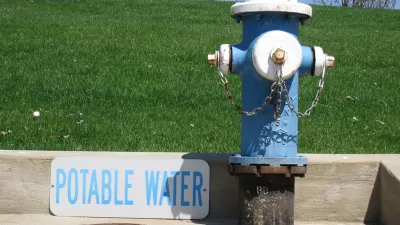
Water Resilience in Dry Climates
How can cities in dry climates become self-sufficient in terms of water? California based Dry Lands Institute is creating a digital design tool called Hazel that aims to address just that.
Cambridge Studying its Vulnerability to Climate Change
The Cambridge Climate Change Vulnerability Assessment is based on detailed climate projections, heat island mapping, and precipitation driven flood modeling. Over 1,000 physical assets and social factors are assessed for vulnerability.
Too Many Cities Relying on 'Plan and Forget' Climate Adaptation Strategies
A highly critical article suggests that the experts drafting climate adaptation plans should re-evaluate their assumptions about what works and what is likely to collect dust on a shelf as the sea rises.
To Solve Sao Paulo's Water Crisis, Collaboration Is Key
Brazil is rethinking it's approach to water infrastructure. Brazilian think-tank Arq Futuro and Arup's Pablo Lazo give their take on the state of South America's most populous country.
President Obama Stakes His Legacy at the Paris Climate Conference
President Obama left for Paris on Sunday to partake in the climate talks known as COP21. Coral Davenport of The New York Times looks at the legacy implications for the president stemming from his commitment to fighting climate change.
Where Climate Change Means Diminished Snowpacks, Water Supplies
A new study by researchers at Columbia University estimates how predicted changes in the levels and locations of snowfall will affect water supplies.
A Planner's Perspective on Brazil's Water Crisis
With water shortages in São Paulo making headlines around the world, Brazil is rethinking its approach to water infrastructure. Arup's Pablo Lazo gives his perspective on the various entities that are acting for change.
Not-So-Secret Climate Change Conspirators: T.V. Weather Reporters
TV weather reporters should be educators of the public about climate change. Yet they range from being outright deniers to keeping silent about this cataclysmic threat to life on Earth. An examination of why and what can be done about it.
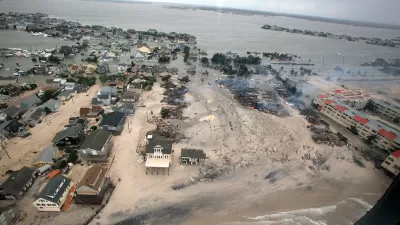
How Sea Level Rise Will Change the Country's Geography
In a worst case scenario, generated by a new study published in the Proceedings of the National Academy of Sciences of the United States of America, land home to 25 million Americans will be lost to rising seas as a result of climate change.
City Action on Climate Change
Can cities be at the forefront of tackling climate change? According to forthcoming research by Arup and the C40 Cities Climate Leadership Group, cities play a crucial role in addressing this pressing issue.
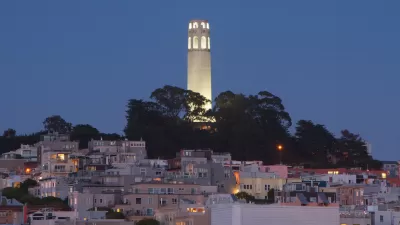
Beyond the Big One: Real Recovery in San Francisco
What does it mean to be a Chief Resilience Officer for one America's largest cities? Doggerel spoke to Patrick Otellini, Chief Resilient Officer for San Francisco, to find out what it takes to make a truly resilient city.
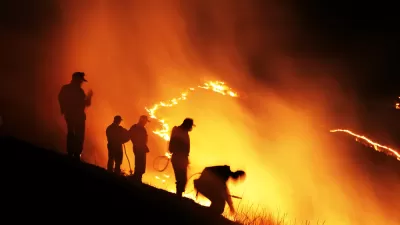
On the Altered Landscapes of the Wildfire West
The heightened intensity of wildfires in the Western United States, along with other human factors, are short-circuiting the natural processes of rebirth.
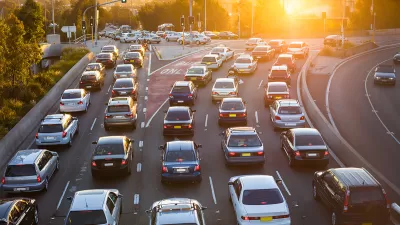
Carbon-Saving Urban Development Makes Economic Sense
A new report stresses the importance of international cooperation on low-carbon development.
Lessons from Washington's Record Breaking Wildfire Season
The largest fire in the state history is burning in Washington. This year's particularly bad fires had predictable, perhaps preventable, origins.
'Digital Coast' Connects Planners and Data for Coastal Resilience
A new resource created by the National Oceanic and Atmospheric Administration in partnership with the APA makes it easier for planners to access the data necessary to plan for climate adaptation, sea level rise, and other forms of coastal resilience.
Pagination
Urban Design for Planners 1: Software Tools
This six-course series explores essential urban design concepts using open source software and equips planners with the tools they need to participate fully in the urban design process.
Planning for Universal Design
Learn the tools for implementing Universal Design in planning regulations.
Clanton & Associates, Inc.
Jessamine County Fiscal Court
Institute for Housing and Urban Development Studies (IHS)
City of Grandview
Harvard GSD Executive Education
Toledo-Lucas County Plan Commissions
Salt Lake City
NYU Wagner Graduate School of Public Service


































